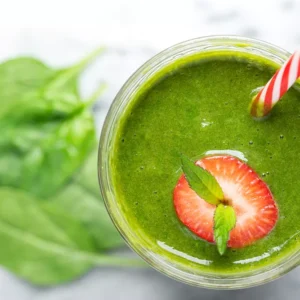Many factors can influence the Mental Health. Indeed, diet, sedentary lifestyle or even loneliness can impact it. She “fluctuates constantly because it depends on many factors”underlines the Health Insurance. The latter is “essential to feel healthy” et “is not defined solely by the absence of mental or psychological disorder.” As we age, it is not uncommon to find that some seniors suffer from depressive symptoms.
Researchers from the National University of Singapore looked at the effects of diet in midlife (between the 40s and 50s) on the risk of suffering from depressive symptoms in later life. They found that “Participants who consumed greater amounts of fruit in midlife were less likely to experience depressive symptoms later in life.”. Their results are published in the Journal of Nutrition, Health and Aging.
Depressive symptoms: eating more fruit could reduce the risk by 21% in older people
“Populations are ageing rapidly worldwide and there is an increased prevalence of late-life depressive symptoms among older adults,” present the researchers. They specify that this translates into in particular a lack of pleasure, a delay in cognitive processing, a loss of appetite, insomnia or even a drop in concentration and a “greater fatigue”. Previous research has shown that this leads to “underlying neurodegenerative changes in the brain associated with aging”. Since diet plays a role in mental health, researchers therefore questioned the place of fruit and vegetable consumption in mid-life and their consequences on depressive symptoms at the end of life.
They therefore analyzed data from a study conducted with 13,738 participants and followed over a period of 20 years. The researchers were interested in eating habits and more specifically in the consumption of the 14 most commonly consumed fruits in Singapore. These include citrus fruits (tangerine, orange), but also bananas, papayas, watermelons, apples and melons.
Researchers recommend eating one to two servings of fruit after each meal
The authors found that consumption of these products “was associated with a reduction in the likelihood of depression”. More specifically, eat at least three servings of fruit per day was linked to a drop in 21% risk of depressive symptoms. As for vegetables, their consumption was not linked to a reduction in depressive symptoms.
According to experts, the benefits of fruits in reducing the risk of depressive disorders are partly linked to the presence of antioxidants in these foods. “This association could be explained by the high content of antioxidants and anti-inflammatory micronutrients in fruits, such as vitamin C, carotenoids and flavonoids.”the researchers write. They explain that previous research has highlighted their benefits in reducing oxidative stress and inflammatory processes in the body, the latter of which are suspected of influencing the development of depression.
Also, they recommend consuming one to two servings of fruit after each meal.
Sources :
- Association between consumption of fruits and vegetables in midlife and depressive symptoms in late life: the Singapore Chinese Health Study – Journal of Nutrition, Health and Aging. (Juin 2024)
- Boosting fruit intake during midlife can ward off late-life blues: NUS study – Yong Loo Lin School of Medicine, National University of Singapore (NUS Medicine) – 22/07/2024 (communiqué)
- Mental Health – Health Insurance












